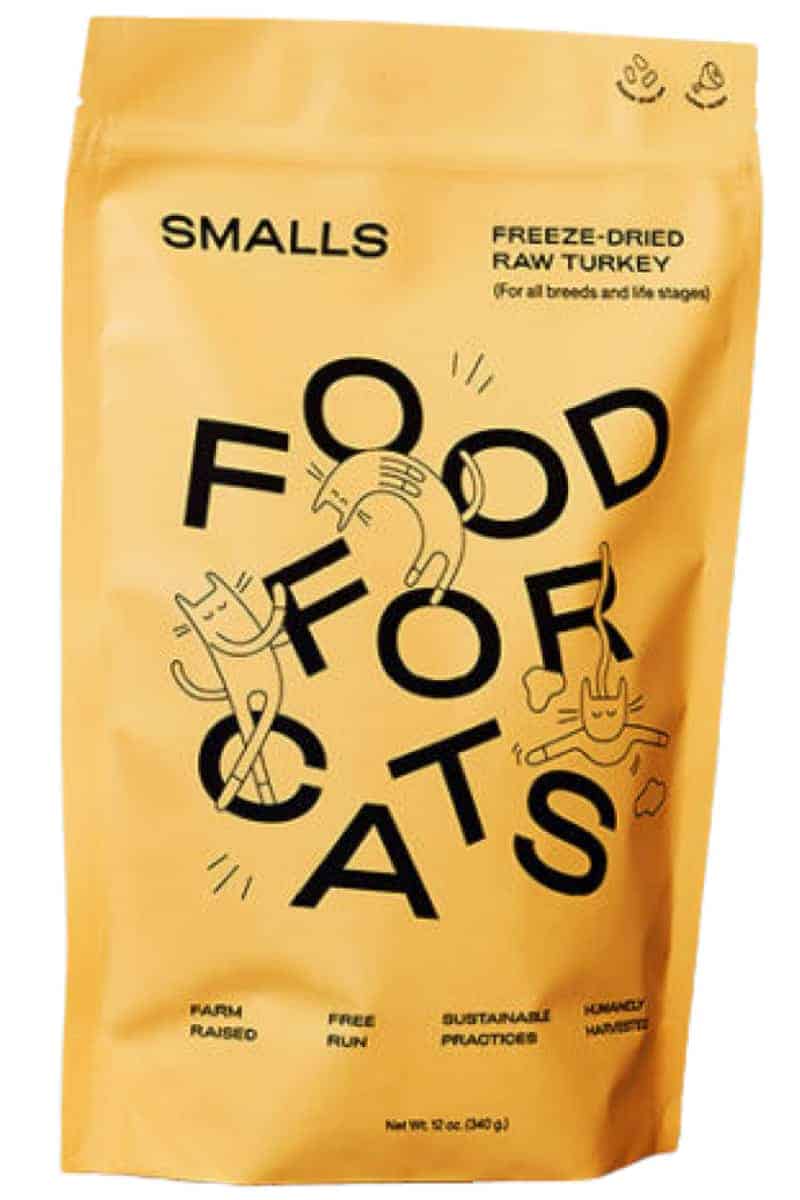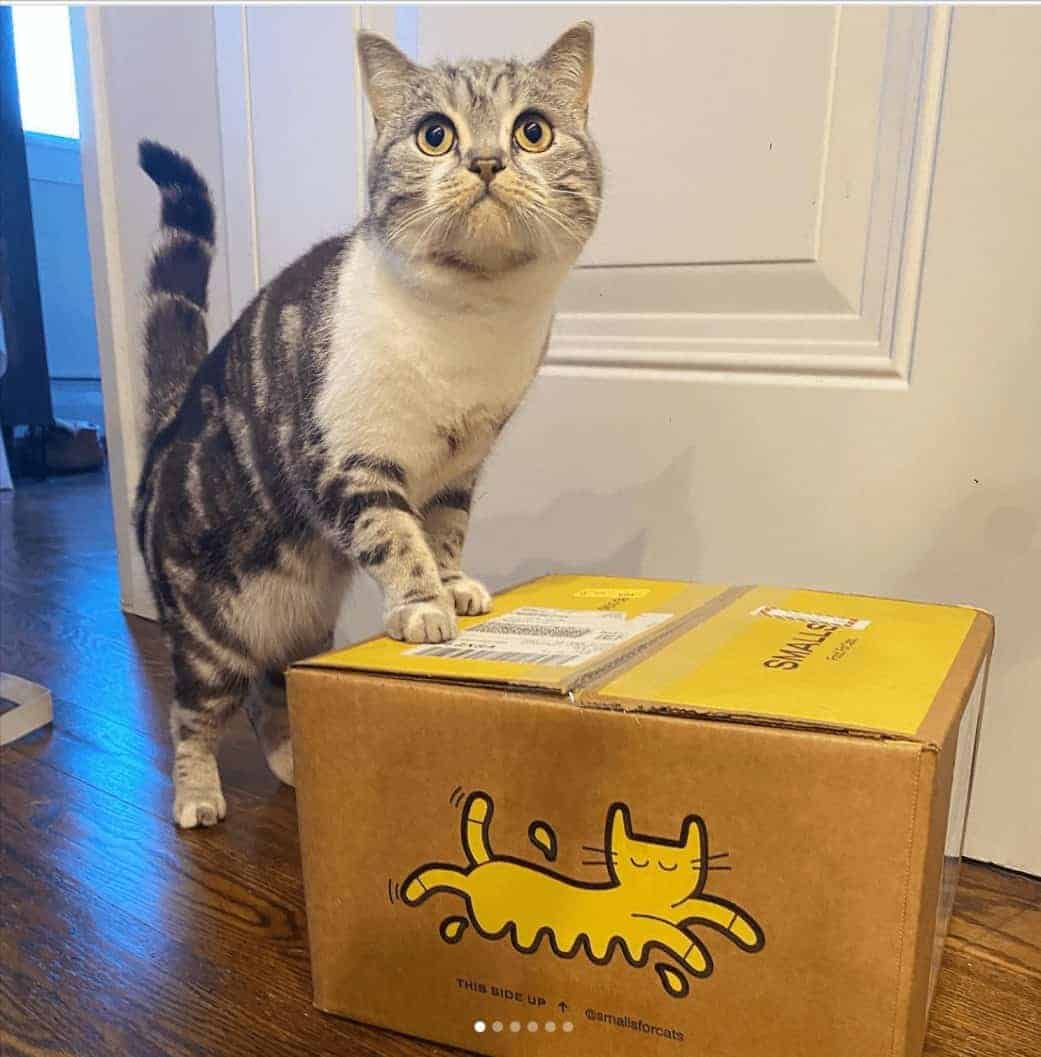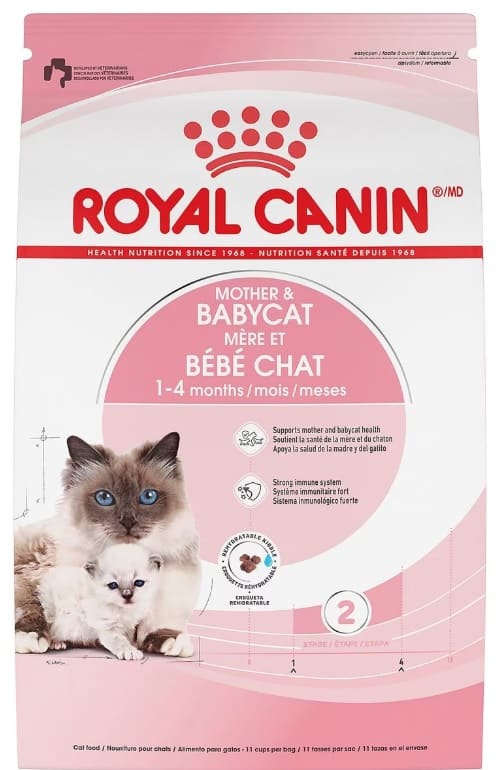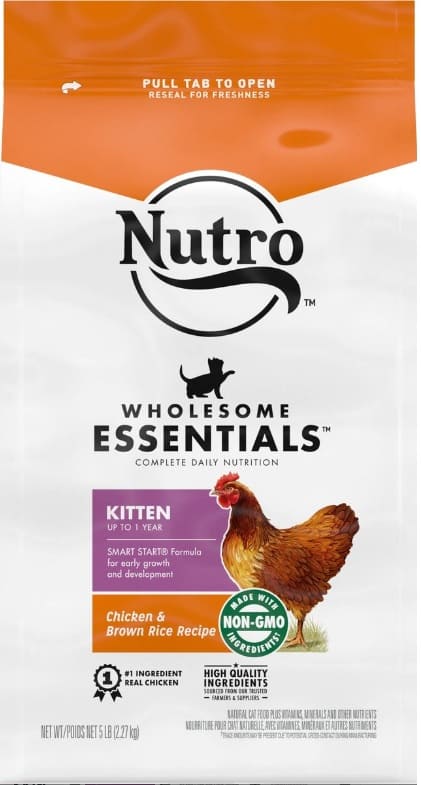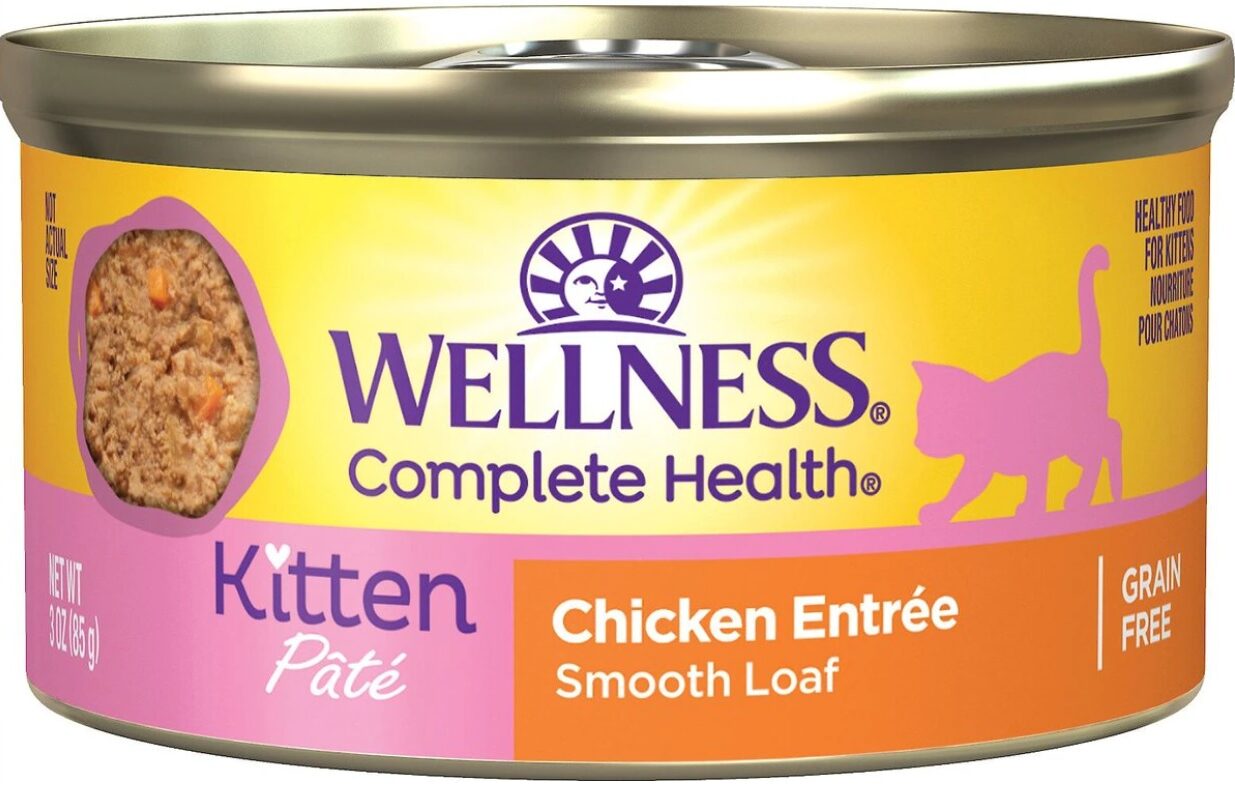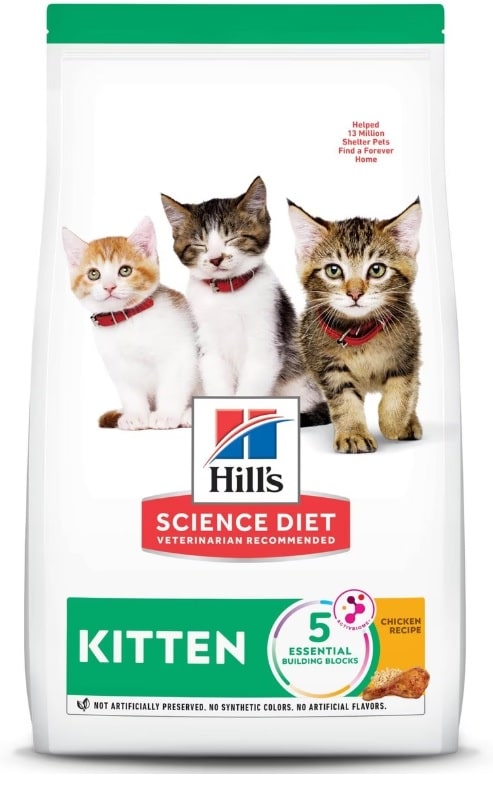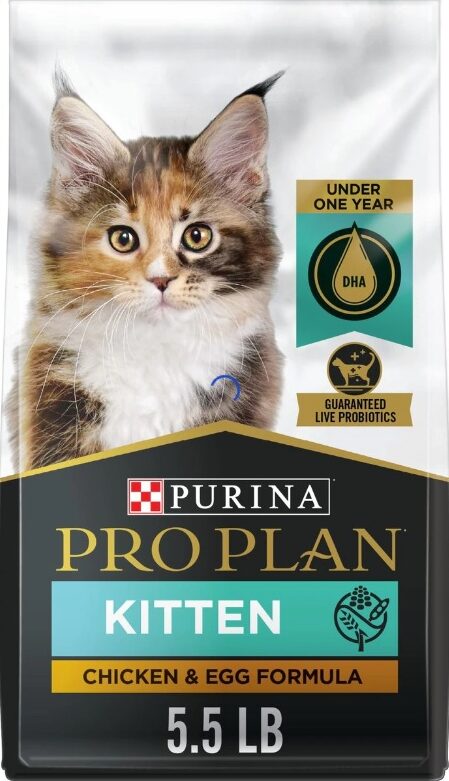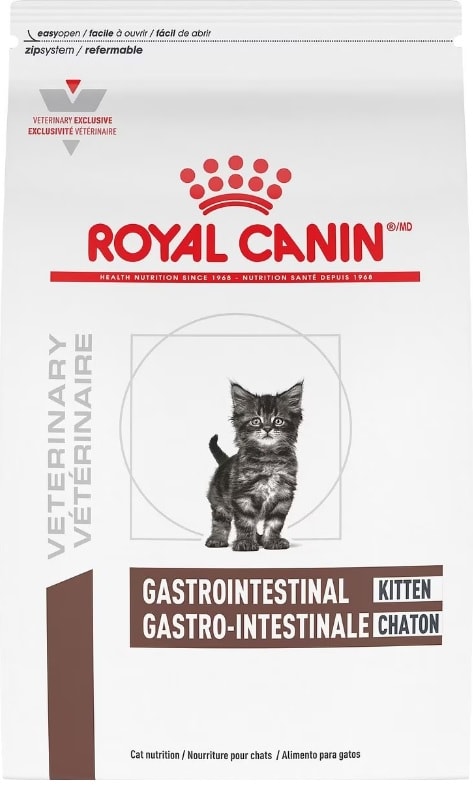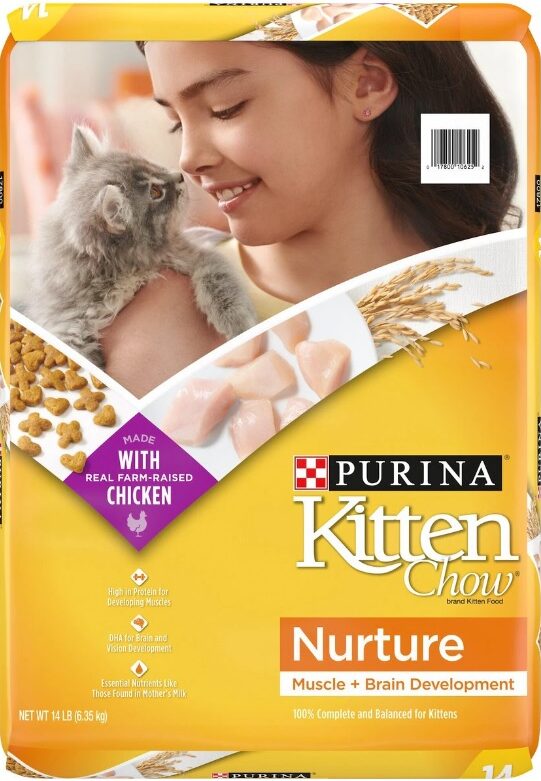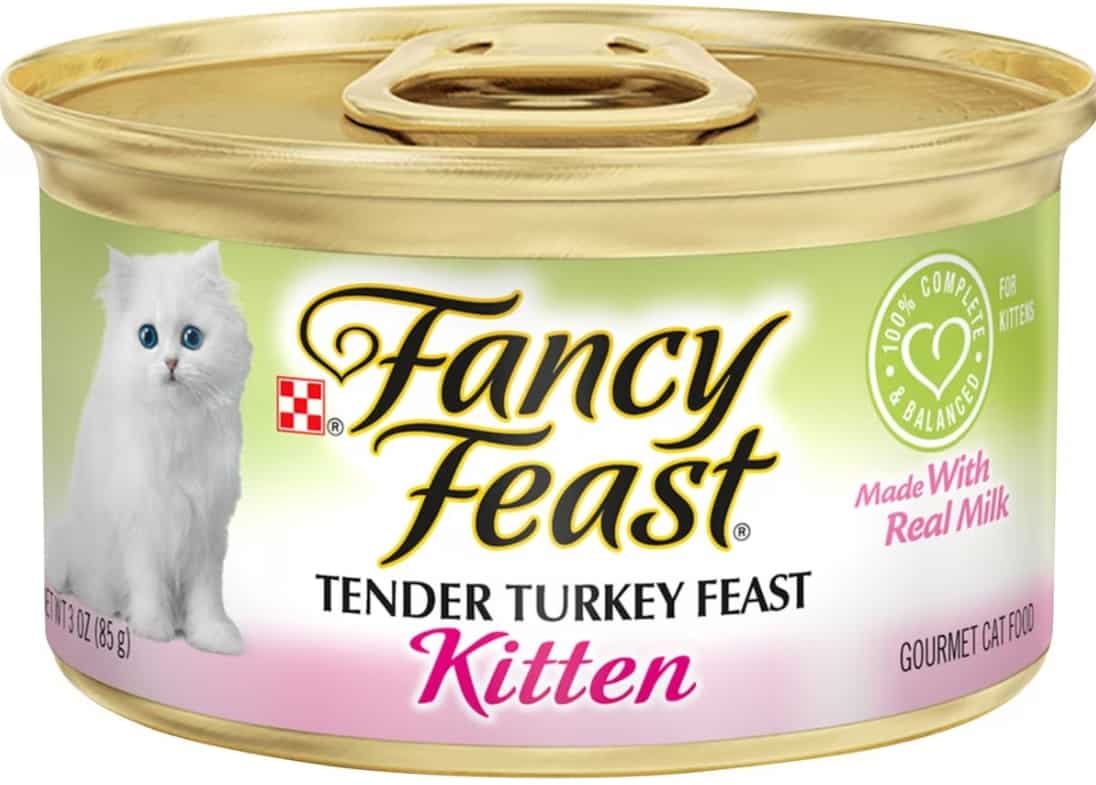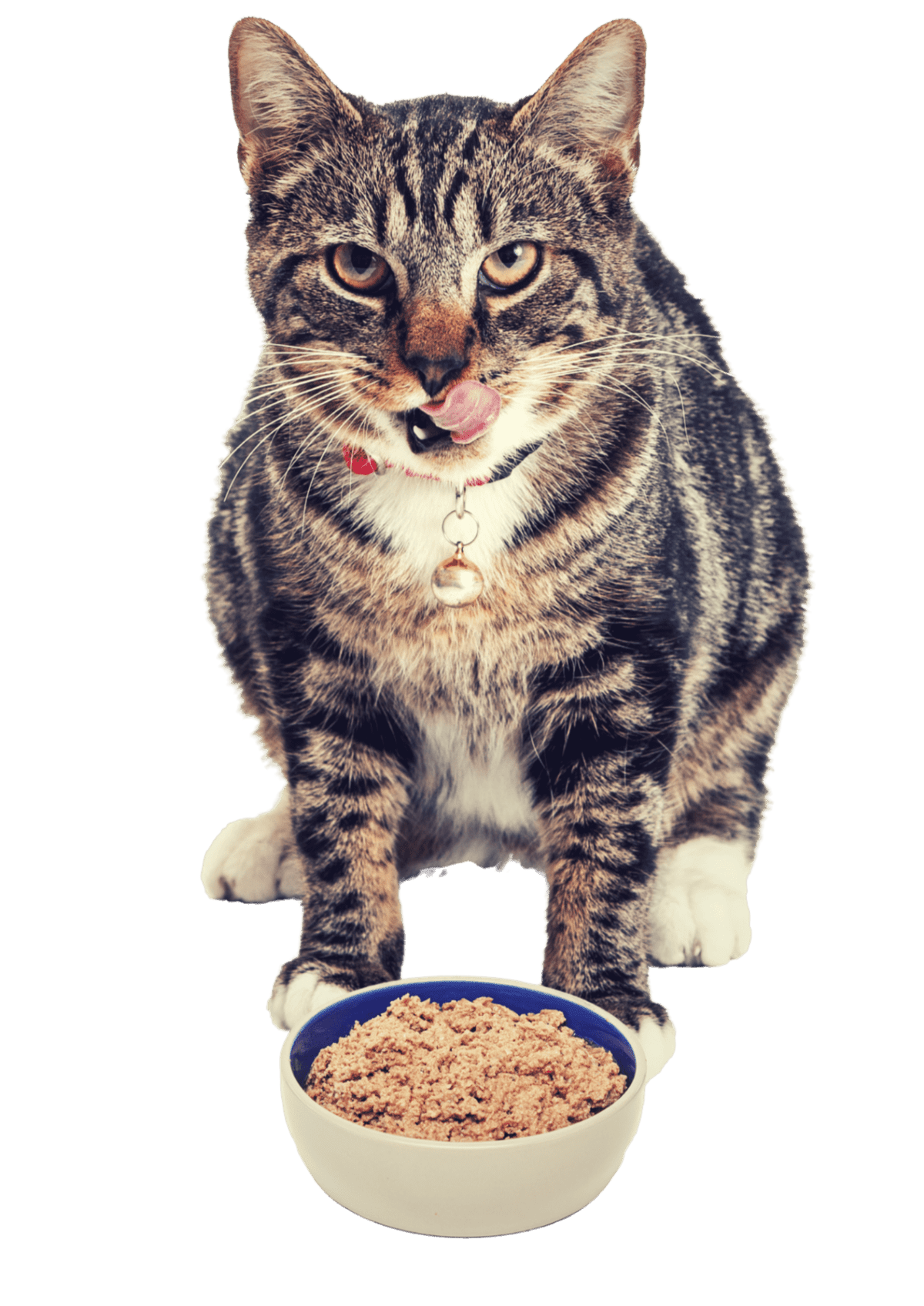Are you a proud owner of a nursing cat? Congratulations! Taking care of a nursing cat can be an incredibly rewarding experience, but it also comes with its own set of challenges. One of the most important aspects of caring for a nursing cat is providing her with the best food possible. After all, she needs the necessary nutrients to ensure the health and well-being of her and her kittens. When it comes to the best food for nursing cats, there are a few key factors to consider.
First and foremost, it's essential to choose a food that is specifically formulated for nursing mothers. These foods are designed to provide the extra calories, protein, and nutrients that a nursing cat needs.
Look for brands that prioritise high-quality ingredients and avoid artificial additives or fillers. Additionally, it's important to ensure that the food is easily digestible for your nursing cat. This will help prevent any digestive issues and ensure that she can absorb all the nutrients from her meals.
With so many options available, it can be overwhelming to choose the right food for your nursing cat. But don't worry, I am going to evaluate the best ones so you may pick the right one for your feline friend.
Understanding the Pregnancy in Cats
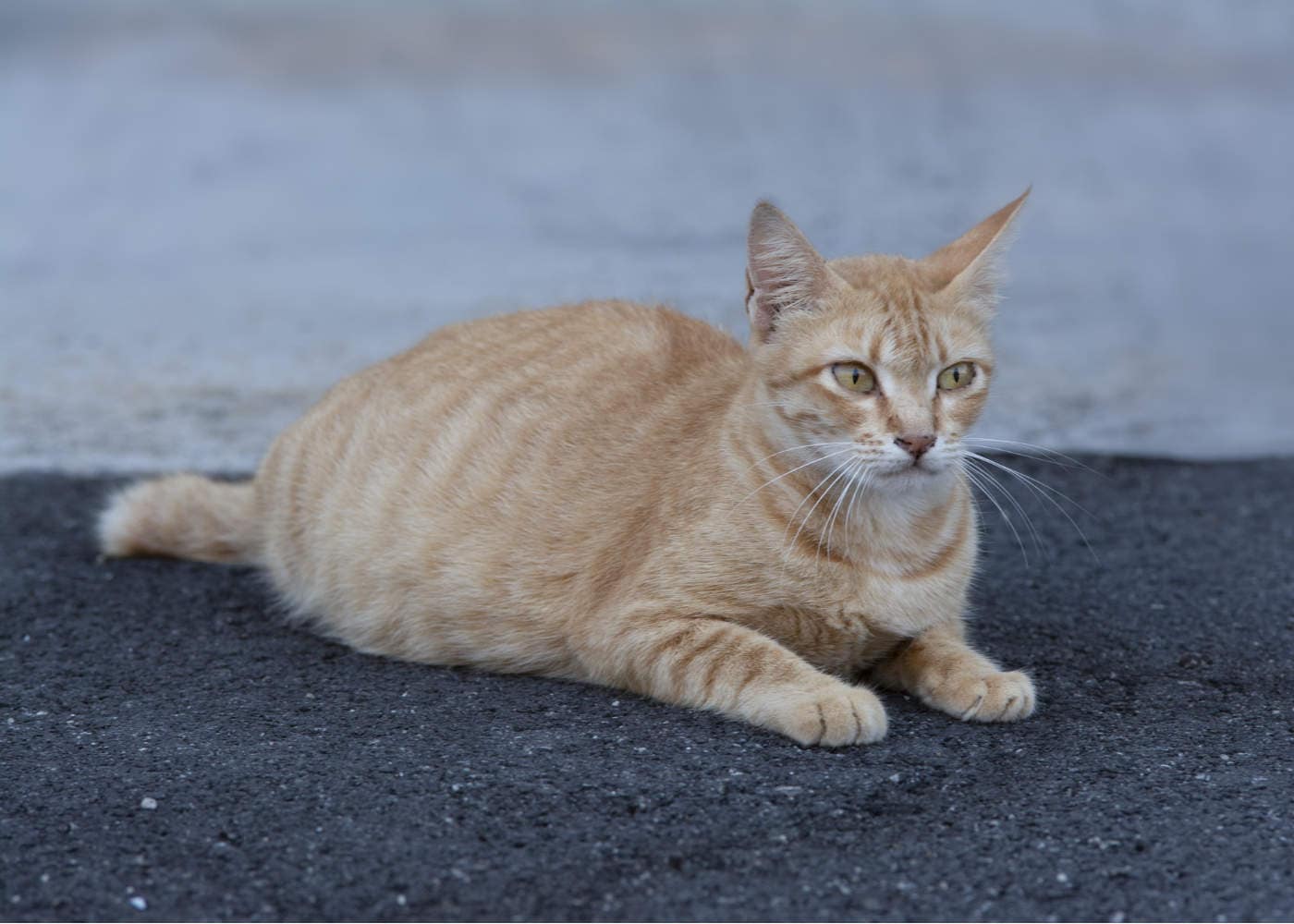
Are you curious about what happens when your cat is expecting? Understanding the pregnancy in cats is important for their health and the health of their adorable kittens.
So, let's dive into it!
Knowing about pregnancy in cats is all about understanding their nutritional needs. During pregnancy, nutritional needs for pregnant cats increase, especially when it comes to protein.
Protein is essential for a nursing cat's diet as it supports milk production. Additionally, the role of fats in milk production shouldn't be overlooked. And let's not forget about the importance of vitamins and minerals for kitten growth.
Exciting times ahead! 🙂
What You Need to Know About Pregnancy in Cats
Pregnancy in cats typically lasts for around 63 to 65 days, with the average litter size ranging from 3 to 5 kittens. It's important to keep a close eye on your cat during this period and provide her with the necessary care and attention she needs.
One crucial aspect of cat pregnancy is ensuring that your cat receives proper nutrition. Pregnant cats have increased energy and nutrient requirements, so it's vital to feed them a balanced and nutrient-rich diet. Choose a high-quality cat food that is specifically formulated for pregnant cats, as it will contain the essential nutrients needed for healthy development.
During pregnancy, your cat's diet should consist of a higher protein content to support the growth of her kittens. Protein is crucial for the development of muscles, tissues, and organs.
Importance of Protein in a Nursing Cat's Diet
During pregnancy, it is important to provide your cat with the necessary nutrients for the healthy development of her kittens. One key nutrient that should not be overlooked is protein. Protein plays a crucial role in the growth and development of the kittens, as well as in the overall health of the nursing cat.
Protein is essential for the production of milk, which is the primary source of nutrition for the newborn kittens. It helps in building and repairing tissues, supporting the immune system, and promoting healthy growth. A lack of protein in a nursing cat's diet can lead to weak and underdeveloped kittens, as well as health issues for the mother.
To ensure that your cat gets enough protein during this critical time, it is important to feed her a high-quality cat food that is specifically formulated for pregnant and nursing cats. Look for a cat food that contains a good balance of animal-based proteins, such as chicken or fish, as well as other essential nutrients.
The Role of Fats in Milk Production
Fats play a crucial role in a nursing cat's diet as they are responsible for the production of high-quality milk for her kittens. During lactation, a mother cat's body goes through significant changes to support her growing offspring. The fat content in her diet helps to ensure that she can provide the necessary nutrients and energy for her kittens' development.
Fats not only provide a concentrated source of energy but also aid in the absorption of fat-soluble vitamins, such as vitamin A, vitamin D, vitamin E, and vitamin K, which are vital for the health and growth of the kittens. Additionally, fats contribute to the overall taste, texture, and aroma of the milk, making it more appealing to the kittens.
It's important to note that the quality of fats is just as crucial as the quantity.
Types of Cat Food Suitable for a Nursing Cat
When it comes to feeding a nursing cat, there are several options available. Kibble is a convenient choice, as it provides nutrition and can be left out for the cat to snack on throughout the day. Canned food is another popular option, offering a higher moisture content which can be beneficial for hydration. Wet food is similar to canned food but typically comes in pouches or trays. Premium cat food brands often contain higher quality ingredients and may be more tailored to a nursing cat's needs. Let's look at each one of them.
Kibble
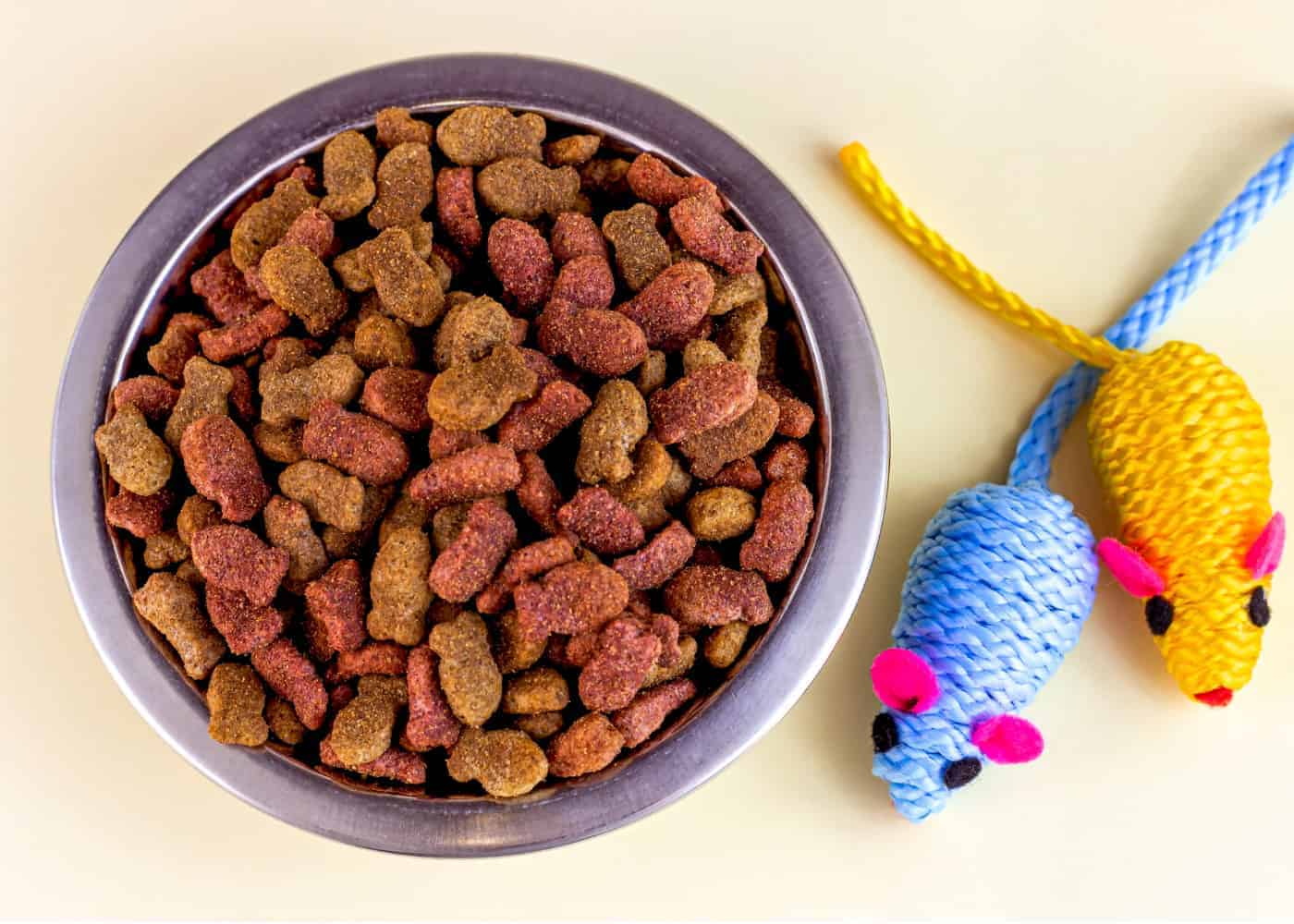
Imagine your nursing cat enjoying a bowl of crunchy kibble, satisfying her taste buds and providing her with the essential nutrients she needs. Kibble, also known as dry cat food, is a popular choice for cat owners due to its convenience and long shelf life. It's made by combining ingredients and then cooking them until they form small, bite-sized pieces.
Kibble is beneficial for nursing cats because it helps maintain their dental health. The crunchiness of the kibble helps to reduce tartar and plaque buildup, keeping your cat's teeth clean and strong. It also promotes healthy chewing, which can help alleviate any discomfort or pain associated with teething.
When selecting a kibble for your nursing cat, opt for a high-quality brand that is specifically formulated for nursing or lactating cats. Look for a balanced kibble that contains all the necessary nutrients, such as protein, healthy fats, and vitamins and minerals. These nutrients are crucial for supporting your cat's overall health and the growth of her kittens.
Canned Food
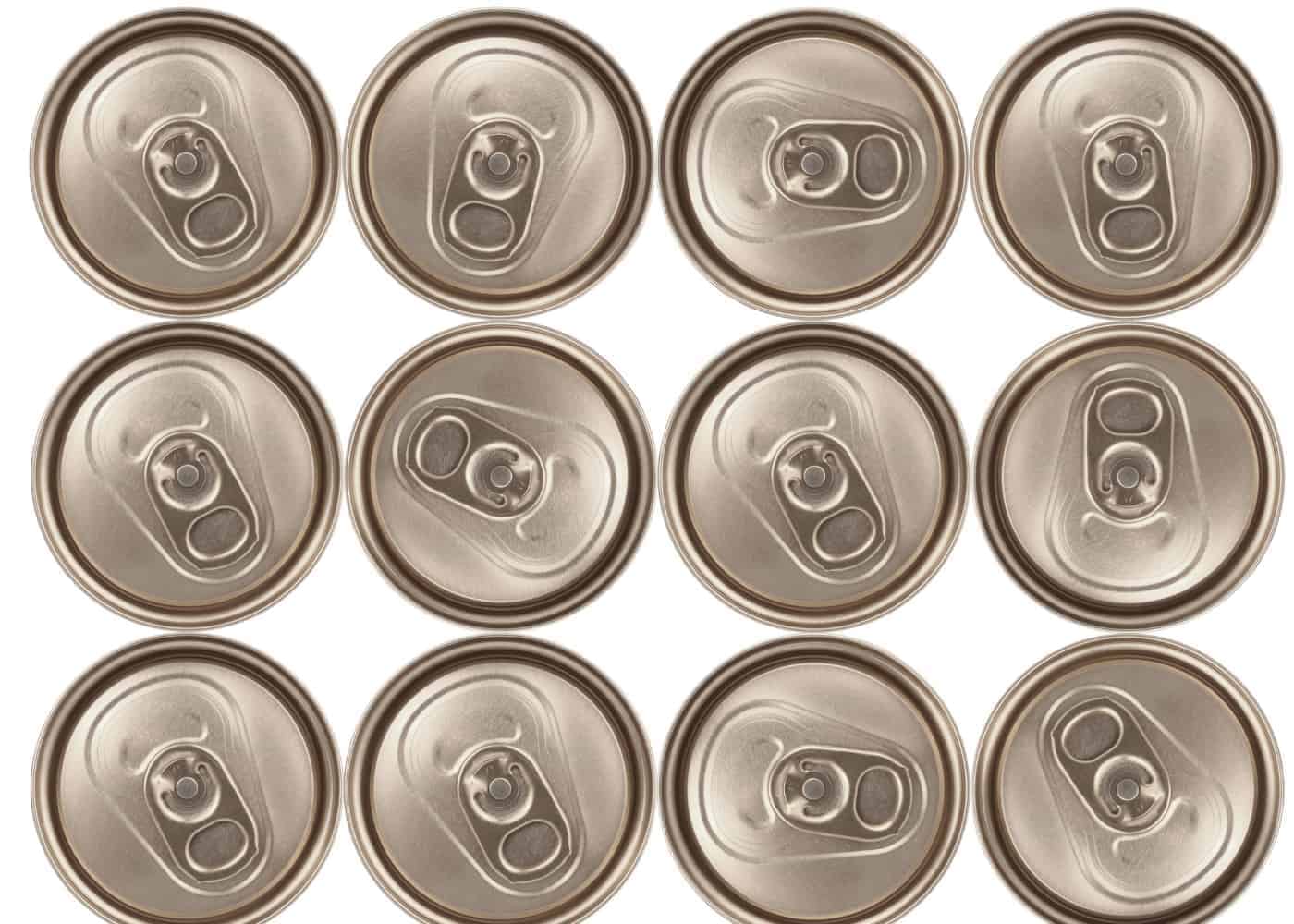
When it comes to providing proper nutrition for your nursing cat, canned food is an excellent choice.
Canned food is a popular option for nursing cats because it contains a high moisture content, which is essential for hydration. Additionally, it provides a more balanced diet than dry kibble alone. The soft texture of canned food makes it easier for nursing cats to chew and digest, especially for those with dental issues or older cats.
One of the advantages of canned food is that it comes in a wide variety of flavors, so you can find the one that your cat loves the most. It also tends to have a stronger aroma, which can entice cats to eat even if they have a decreased appetite due to nursing.
Wet Food
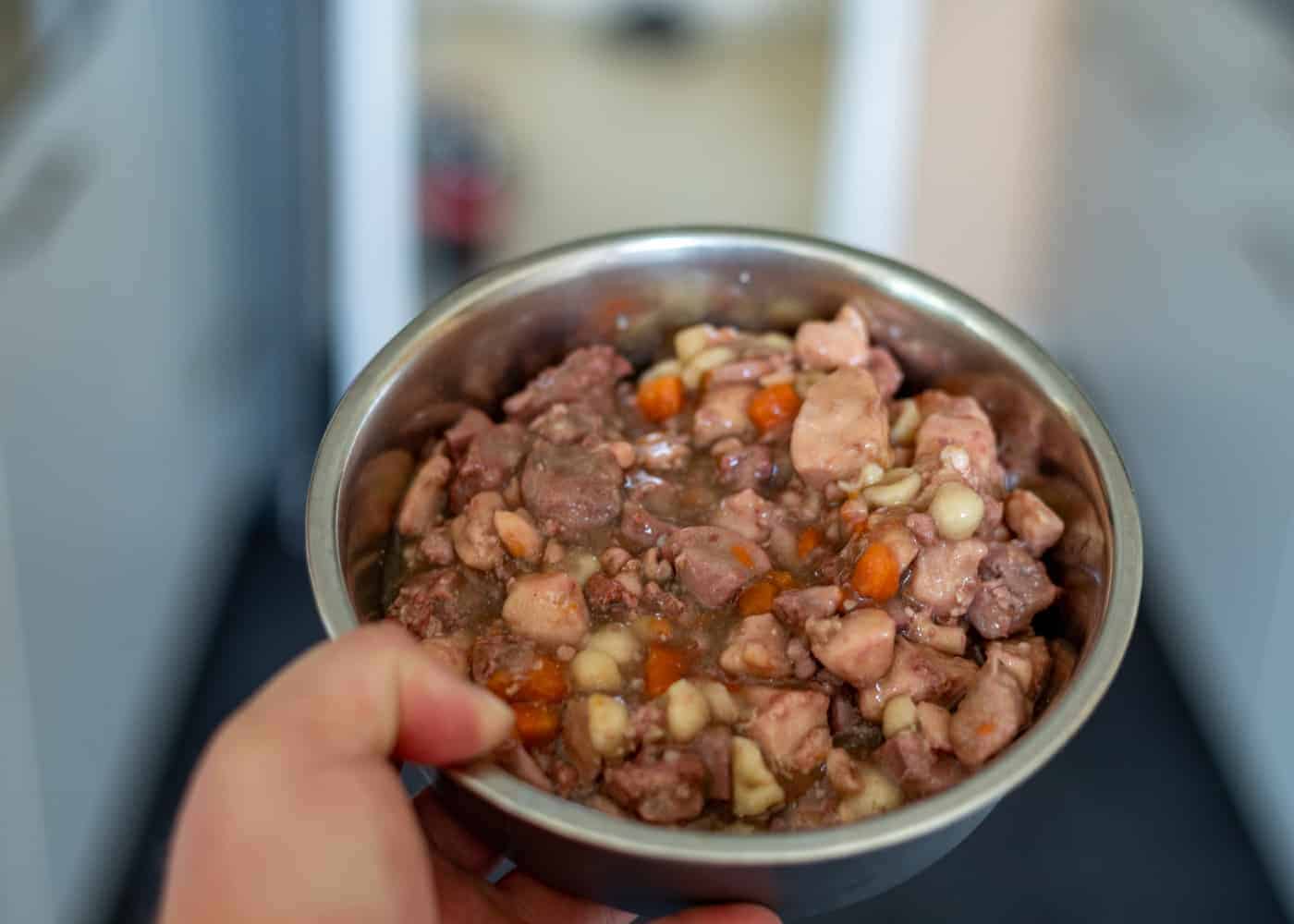
Wet food is a popular choice among cat owners because of its high moisture content and delicious flavors. It comes in cans or pouches, and you can easily find a wide variety of options at your local pet store.
Wet food is a great choice for nursing cats because it provides them with the necessary hydration they need during this demanding time. The moist texture makes it easier for the mother cat to eat and digest, ensuring she stays nourished and healthy while taking care of her kittens.
When selecting wet food for your nursing cat, look for options that are specifically formulated for lactating cats. These formulas are designed to provide the extra nutrients and energy that a nursing cat needs to support her milk production and maintain her own health. Additionally, opting for a grain-free wet food can also be beneficial as it reduces the risk of allergies or digestive issues.
Premium Cat Food
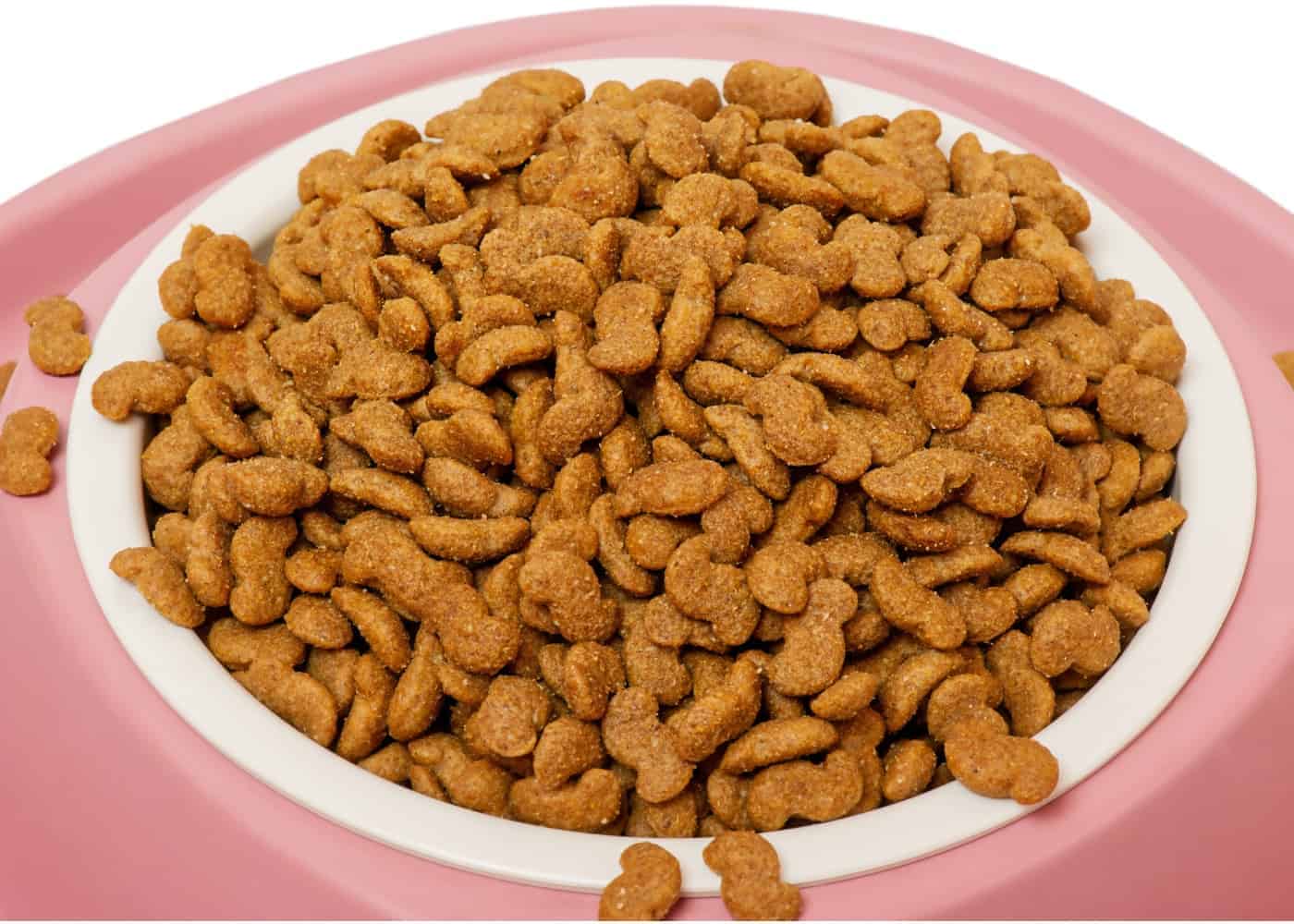
Premium cat food is formulated with high-quality ingredients that are carefully selected to provide optimal nutrition for your cat and her growing kittens. These types of cat food often contain a higher percentage of protein, which is essential for supporting the healthy development of your cat's kittens.
Additionally, premium cat food is typically made with a blend of vitamins and minerals that help boost your cat's immune system and promote overall health. This can be particularly beneficial during the demanding period of nursing, as it helps your cat's body recover and cope with the demands of motherhood.
Furthermore, premium cat food often comes in a variety of flavors and textures, appealing to even the pickiest of feline eaters.
09 Best Cat Food for Nursing Cats in 2023
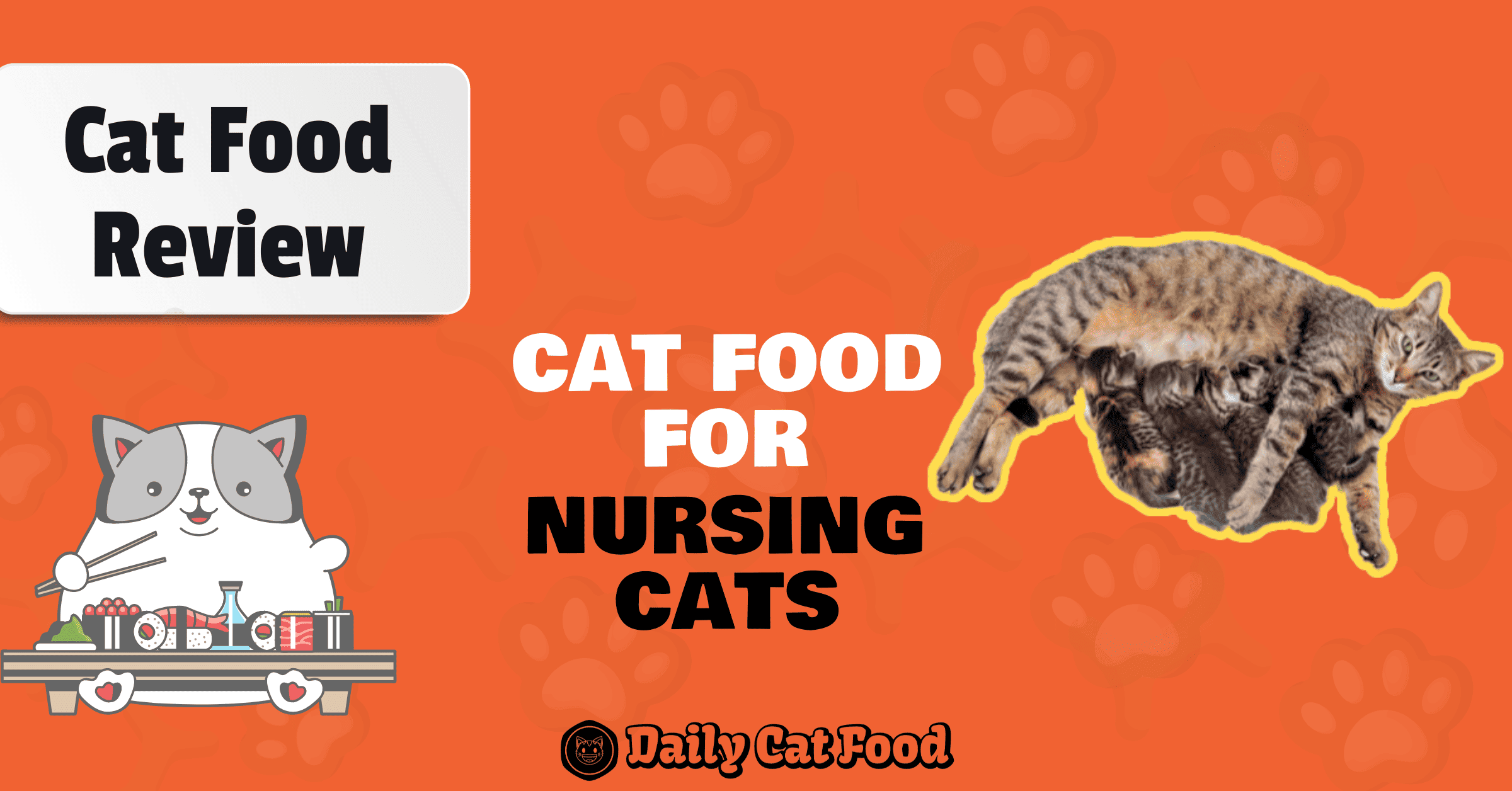
If you're a cat owner with a nursing cat, you want to make sure she's getting the best nutrition possible. That's why I'm here to introduce you to my carefully selected, handpicked 9 top-notch cat food options for nursing cats.
This innovative company delivers freshly prepared meals straight to your doorstep, ensuring your nursing cat receives the highest quality nutrition.
Smalls understands the importance of using premium ingredients, which is why they source their meat from human-grade suppliers. Their ground bird recipe is packed with essential proteins, vitamins, and minerals that support the health of both mother and kittens.
Plus, their subscription service ensures you never run out of food, making it convenient and hassle-free for busy cat parents like you.
Not only does Smalls prioritise your cat's wellbeing, but they also consider the environment. Their packaging is eco-friendly, made from recycled materials, and can be easily recycled again. By choosing Smalls Ground Bird Fresh Cat Food Subscription Service, you're not only providing the best for your nursing cat, but also making a sustainable choice.
Why is this wet cat food a favorite among nursing cats and their owners?
First and foremost, it is specifically formulated to meet the nutritional needs of both the mother cat and her growing kittens. The soft texture of the wet food is perfect for kittens who are just starting to wean off their mother's milk. It is packed with essential nutrients, such as protein, vitamins, and minerals, to support the kittens' healthy growth and development.
Additionally, Royal Canin Mother & Babycat Wet Cat Food is highly palatable, making it irresistible to even the pickiest of eaters. This is especially important for nursing cats, as they need to maintain a healthy appetite to produce enough milk for their kittens.
Nutro is a well-known and trusted brand that focuses on providing high-quality nutrition for cats of all ages. Their Wholesome Essentials line is specially formulated to meet the unique needs of growing kittens and nursing mothers.
What sets Nutro Wholesome Essentials apart is its use of real chicken as the main ingredient. This ensures that your nursing cat gets the protein she needs to support her and her kittens' growth and development. The recipe also includes a blend of antioxidants, vitamins, and minerals to support overall health and immune function.
Not only is Nutro Wholesome Essentials Chicken Kitten Dry Cat Food nutritious, but it is also incredibly convenient. The dry kibble format makes it easy to serve and store, and it doesn't require refrigeration like wet cat food does.
Another highly recommended option is Wellness Complete Health Grain-Free Canned Kitten Food. This cat food is not only delicious but also packed with nutrients to support the health of nursing cats and their kittens.
Wellness Complete Health Grain-Free Canned Kitten Food is made with real chicken as the first ingredient, ensuring a high-quality protein source to promote lean muscle growth and development. The grain-free formula is gentle on sensitive stomachs, making it ideal for nursing cats who may have dietary sensitivities.
This canned cat food is rich in essential vitamins and minerals, aiding in the overall well-being of nursing cats. The balanced and complete formula helps support their immune system, ensuring they stay strong and healthy to care for their kittens.
The texture of this cat food is also perfect for nursing cats, as it is soft and moist.
Hill's Science Diet Kitten Dry Food is specifically formulated to meet the nutritional needs of growing kittens, including those who are nursing. It provides a balanced diet that supports their development, ensuring they get all the essential nutrients they need.
What sets Hill's Science Diet Kitten Dry Food apart is its high-quality ingredients. Made with real chicken as the first ingredient, this dry food is packed with protein to promote healthy muscle growth. It also contains a blend of antioxidants, vitamins, and minerals to support a strong immune system.
Not only does Hill's Science Diet Kitten Dry Food provide the necessary nutrition, but it also has a taste that kittens love. With its crunchy texture, it helps to keep their teeth clean and supports oral health.
This formula is specially designed to provide everything a growing kitten needs for a healthy start in life.
Purina Pro Plan Kitten is made with real chicken as the primary ingredient, ensuring a high-quality source of protein to support muscle development. This delicious and nutritious food also contains a blend of antioxidants, vitamins, and minerals to promote a strong immune system and overall wellbeing.
One of the unique features of Purina Pro Plan Kitten is its inclusion of DHA, an omega-3 fatty acid that supports brain and vision development. This is crucial for nursing cats, as they pass essential nutrients to their kittens through their milk.
Not only does Purina Pro Plan Kitten provide essential nutrients, but it also offers a taste that kittens love.
In the world of cat food, there is one brand that stands out for its exceptional quality and innovation: Royal Canin Veterinary Diet Gastrointestinal Kitten Food.
Just imagine your nursing cat enjoying a meal that not only satisfies her nutritional needs but also supports her delicate digestive system. With Royal Canin Veterinary Diet Gastrointestinal Kitten Food, you can provide your furry friend with the care she deserves.
This specially formulated cat food is designed to promote optimal digestive health in growing kittens. It is packed with high-quality ingredients that are gentle on your cat's stomach, making it easier for her to digest and absorb essential nutrients. Plus, it is enriched with prebiotics to support a healthy gut microbiome and improve overall digestion.
Not only does Royal Canin Veterinary Diet Gastrointestinal Kitten Food offer digestive support, but it also provides a complete and balanced diet to support your kitten's overall growth and development.
Now that we've covered the benefits of Purina Pro Plan Kitten and Royal Canin Veterinary Diet Gastrointestinal Kitten Food, let's talk about another great option for nursing cats in 2023: Kitten Chow Nurture Muscle & Brain Development Cat Food.
If you're looking to support your nursing cat's overall growth and cognitive health, this cat food is a fantastic choice. With its special formula, Kitten Chow Nurture provides essential nutrients like DHA to help nourish your kitten's developing brain. It also contains high-quality protein to promote healthy muscle development, which is crucial for growing kittens.
Not only does Kitten Chow Nurture prioritise your cat's nutrition, but it also offers a delicious taste that your furry friend will love. Its crunchy texture and savoury flavors make mealtime an enjoyable experience for both you and your kitten.
Remember, when choosing a cat food for nursing cats, it's important to consider their specific needs at every stage of life.
If you want to give your nursing cat a truly indulgent meal, this is the perfect choice.
Fancy Feast is known for its gourmet flavors, and the Tender Turkey Feast is no exception. Made with real turkey as the primary ingredient, it provides a high-quality source of protein to support your cat's overall health and well-being.
What sets this cat food apart is its tender texture and rich flavor. The succulent pieces of turkey are cooked to perfection and coated in a savoury gravy that will leave your cat licking their whiskers in delight.
Not only does Fancy Feast Tender Turkey Feast taste amazing, but it also offers essential nutrients to support your nursing cat's increased nutritional needs. It is packed with vitamins, minerals, and antioxidants to promote a strong immune system and overall vitality.
How to Transition Cat Food for Nursing Cat Mothers?
When it comes to transitioning cat food for nursing cat mothers, there are a few important steps to follow.
Step 1: Choose the Right Cat Food for Nursing Cat Mothers
The first step is crucial, as it sets the foundation for her overall health and well-being.
Start by considering her specific needs. Nursing mothers require a diet that is rich in essential nutrients, such as protein, calcium, and DHA. These nutrients are vital for her to produce nutritious milk and support her own body's recovery after giving birth. Look for cat foods that are specifically formulated for nursing mothers, as they are designed to meet these unique nutritional requirements.
Next, take into account any dietary restrictions your cat may have. Some cats may have allergies or sensitivities to certain ingredients, so it's important to choose a cat food that avoids those potential triggers. Opting for a grain-free option is often a good choice, as it eliminates common allergens and promotes better digestion.
Finally, consider your cat's personal preferences.
Step 2: Research and Find the Best Cat Food for Nursing Mothers
With so many options available on the market, it can be overwhelming to determine which one is the best for your furry friend. But fear not! I'm here to help you navigate through the sea of choices.
First, start by looking for high-quality cat food brands that specifically cater to nursing mothers. These brands often have formulas that are rich in essential nutrients such as protein, calcium, and DHA. These nutrients are crucial for the health and development of both the mother and her kittens.
Next, it's important to read reviews and gather recommendations from other cat owners who have had experience with nursing cats. Online forums, pet blogs, and social media groups dedicated to cat care can be great resources for finding honest opinions and recommendations.
Lastly, consult with your veterinarian.
Step 3: Make Sure the Cat Food Has the Correct Nutrient Requirements for Nursing Mothers
Nursing mothers have unique dietary needs to support both their own health and the growth and development of their kittens.
When it comes to nutrient requirements, there are a few key things to look for in a cat food for nursing mothers. First and foremost, protein is essential. Nursing cats require a higher amount of protein to support milk production and the growth of their kittens. Look for a cat food that lists high-quality sources of protein, such as chicken or fish, as the first ingredient.
In addition to protein, essential fatty acids are also crucial for nursing mothers. These fatty acids, such as omega-3 and omega-6, support brain development and immune function in both the mother and her kittens.
Step 4: Check Out the Subscription Services (e.g. Smalls Other Bird Recipe)
I understand the demands of being a cat parent and how precious your time is. That's why I'm here to tell you about the incredible convenience of subscription services like Smalls other bird recipe.
With a subscription service, you can say goodbye to tedious trips to the store and heavy bags of cat food. Instead, you can have high-quality, grain-free canned kitten food delivered right to your doorstep.
Smalls other bird recipe offers a wide range of options that are specially formulated for the nutrient requirements of nursing cat mothers. Plus, their recipes are made with real, wholesome ingredients that you can trust.
By choosing a subscription service, you can ensure that your nursing cat mother always has the nutritious food she needs without any hassle.
Step 5: Choose a Grain-Free Canned Kitten Food that Is Right for Your Kitten
Now that you have successfully transitioned your nursing cat to a new diet, it's time to focus on choosing the right grain-free canned kitten food for your little one. This step is crucial in ensuring that your kitten receives the proper nutrients for healthy growth and development.
Choosing a grain-free canned kitten food provides several benefits. First and foremost, it helps prevent digestive issues that can be caused by grains. Additionally, it ensures that your kitten gets the right balance of protein, fats, and carbohydrates needed for their growing bodies.
When selecting a grain-free canned kitten food, look for options that are specifically formulated for kittens. These foods are designed to meet the unique nutritional needs of young cats. They often contain higher levels of protein and essential vitamins and minerals to support their rapid growth and energy requirements.
It's also a good idea to consult with your veterinarian to get their recommendations on the best grain-free canned kitten food brands available. They can provide valuable insights based on your kitten's individual needs.
8 Cat Food Feeding Tips for Nursing Cat Mothers
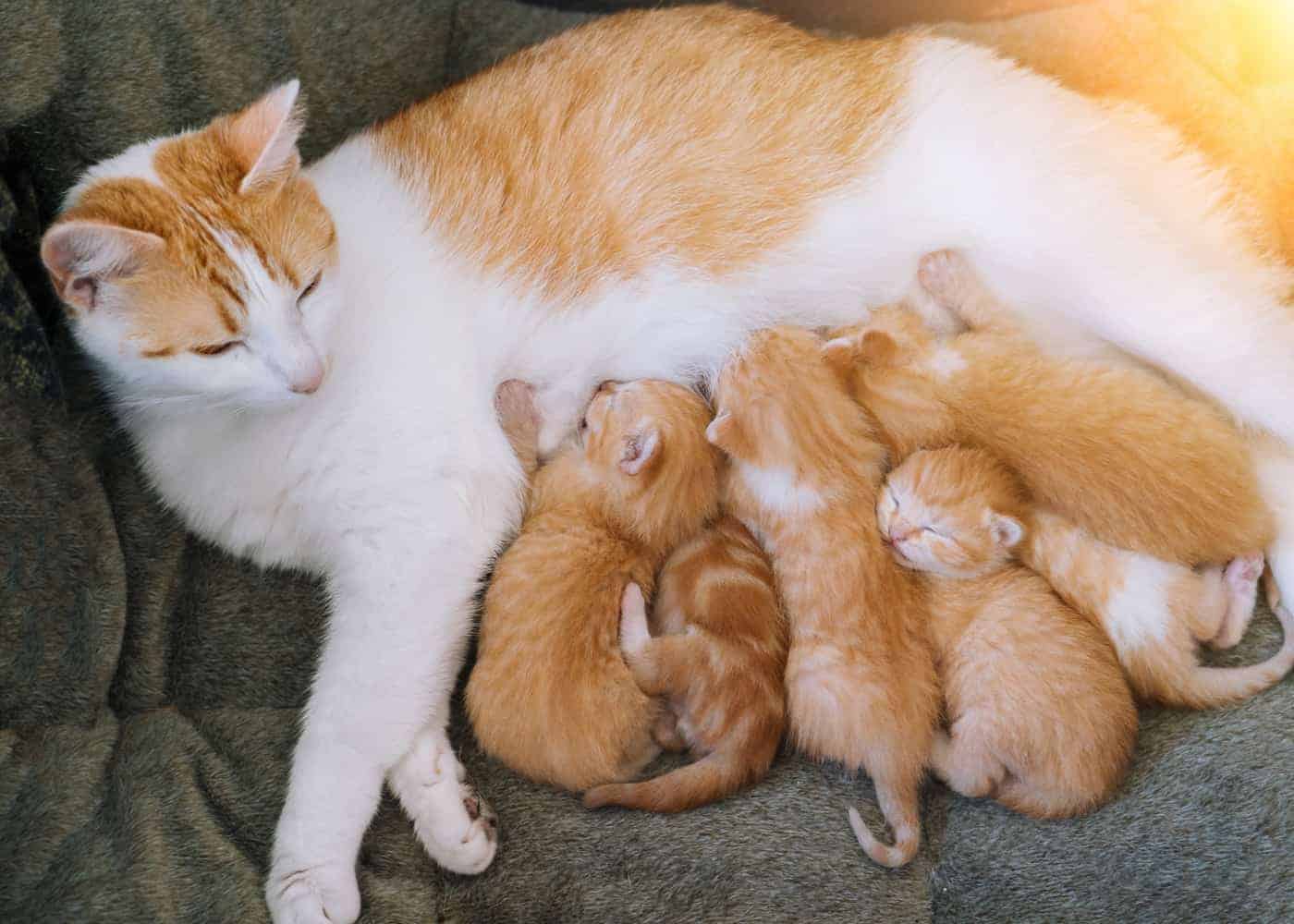
When it comes to feeding your nursing cat, it's important to consult with your veterinarian to determine the best diet for her.
They can provide expert advice tailored to your cat's specific needs. Consider her nutritional needs during this time and make sure her diet provides the necessary nutrients for her and her kittens.
Mix up her diet to avoid potential food allergies and provide variety. Consider feeding her wet food instead of dry food as it can be easier for her to eat and ensure she stays hydrated. Remember, a well-balanced diet is essential for the health and well-being of your nursing cat.
Consult with Your Veterinarian About the Best Diet for Your Cat While She Is Nursing
Congratulations on your nursing cat mother! Now that your cat has entered this special phase, it's important to consult with your veterinarian about the best diet for her. Every cat is unique, and your vet can provide personalized advice on what nutrients and feeding schedule are best for your cat's specific needs.
Your veterinarian is your best resource for understanding your cat's dietary requirements during the nursing period. They can take into account factors such as your cat's age, weight, and overall health to recommend the most suitable diet.
During this consultation, be sure to ask about the frequency and quantity of feedings. Nursing cat mothers often have higher calorie needs, so your vet may suggest increasing the amount of food or feeding more frequently.
Additionally, your vet can guide you on the best type of cat food to feed your nursing cat. They may recommend a high-quality commercial cat food that provides a balanced and complete diet or suggest specific supplements to ensure she receives all the necessary nutrients.
Consider the Nutritional Needs of Your Cat While She Is Nursing
Consider the nutritional needs of your cat while she is nursing. Nursing cats require more calories and nutrients compared to non-nursing cats. They need extra protein, calcium, and vitamins to support the growth and development of their kittens. Make sure to choose a high-quality cat food that is specifically formulated for nursing cats.
To feed your cat a diet that provides the nutrients she needs, look for cat foods that contain ingredients like chicken, fish, or lamb. These proteins are rich in essential amino acids that support muscle growth and repair. Additionally, opt for cat foods that are fortified with vitamins and minerals to ensure your cat is getting a well-rounded diet.
Mix up your cat's diet to help avoid food allergies.
Mix up Your Catʼs Diet to Help Avoid Food Allergies
Mixing up your cat's diet can be a great way to help avoid food allergies and keep her healthy and happy. By offering a variety of different foods, you can help prevent your nursing cat from developing sensitivities or intolerances to certain ingredients. Plus, it adds some excitement and variety to her meals, making mealtime a joyous occasion for both of you.
One way to mix up your cat's diet is by rotating between different brands of cat food. Each brand uses its own unique set of ingredients, so by switching between them, you're exposing your cat to a wider range of proteins and nutrients. Another option is to offer a combination of wet and dry food. Wet food is not only hydrating, but it also provides a different texture and flavor that can help keep your cat interested in her meals.
Remember, when introducing new foods to your cat, it's important to do so gradually.
Consider Feeding Your Cat Wet Food Instead of Dry Food
Wet food is a great option for nursing cat mothers because it provides higher moisture content and is easier for them to digest. This can be especially beneficial for cats who may be experiencing decreased appetite or difficulty chewing due to the demands of nursing.
By opting for wet food, you can also ensure that your cat is getting enough hydration, which is crucial for maintaining her overall health. Additionally, wet food tends to have a higher protein content, which is essential for a nursing cat's increased energy needs.
When choosing wet food for your nursing cat, look for options that are specifically formulated for nursing or lactating mothers. These formulas are designed to provide the necessary nutrients to support both the mother and her kittens.
Make Sure the Food You Are Feeding Your Cat Is High Quality
Feeding your cat high-quality food is crucial for her overall health and well-being.
Choosing the right cat food is essential, as it provides the necessary nutrients and energy for your nursing cat. Look for trusted brands that prioritize the use of real meat as the primary ingredient, rather than fillers or by-products. Avoid foods that contain artificial flavors, colors, and preservatives, as these can be harmful to your cat's health.
Opting for a grain-free option can also be beneficial, as cats are obligate carnivores and their bodies are not designed to digest grains efficiently. By selecting a grain-free formula, you are ensuring that your cat's nutritional needs are met.
Remember to consult with your veterinarian to determine the specific dietary requirements for your nursing cat.
Feed Your Cat Small Meals Throughout the Day
Let's talk about another important tip: feeding her small meals throughout the day. This is crucial to ensure that she is getting enough nutrients and energy to sustain herself and her kittens.
Why is it important to feed your cat small meals? Well, just like humans, cats have small stomachs and can only eat a limited amount of food at once. By feeding her small meals throughout the day, you are allowing her to eat at her own pace and prevent overeating or indigestion.
Imagine this: your nursing cat, comfortably lying on her cozy bed, enjoying a delicious meal.
By offering small, frequent meals, you are also ensuring that your cat has a steady supply of energy. Nursing mothers have high energy requirements, and by providing her with regular meals, you are helping her meet those needs.
Additionally, smaller meals are easier for your cat to digest, reducing the risk of digestive issues and discomfort.
Consider Feeding Your Cat Food that Is Similar to the Food She Ate as a Kitten
Now, let's talk about the importance of feeding your nursing cat food that is similar to what she ate as a kitten. Just like humans, cats have certain preferences when it comes to their meals, and this is especially true for nursing cat mothers.
When a cat becomes a mother, she may experience a change in her taste preferences. This is why it is crucial to consider feeding her food that she enjoyed as a kitten. By doing so, you are ensuring that she gets the nutrients she needs, while also satisfying her cravings.
One of the main benefits of feeding your nursing cat food similar to what she ate as a kitten is that it can help her transition smoothly into motherhood. The familiar taste can provide her with a sense of comfort and security during this new phase of her life. It can also help stimulate her appetite and encourage her to eat regularly, which is essential for her health and the health of her kittens.
Read the Labels and Check for Ingredients Your Cat May Be Allergic To.
This is crucial to ensure your furry friend's health and well-being.
Reading the labels on cat food is like reading a treasure map. It provides valuable information about what's inside that can impact your cat's health. Take a moment to scan the ingredients list and look for any potential allergens. Common culprits include wheat, soy, corn, and artificial additives. If your cat has shown signs of allergies in the past, it's best to avoid those ingredients altogether.
Checking for ingredients your cat may be allergic to is an important step in keeping your cat healthy and happy. Look for cat food that is specifically formulated for cats with allergies or sensitivities. These foods often contain limited ingredients, making it easier to identify and avoid potential triggers. Remember, every cat is unique, so what works for one may not work for another.
Buyer's Guide: 07 Ways Of Choosing the Best Food for Nursing Cat Mothers
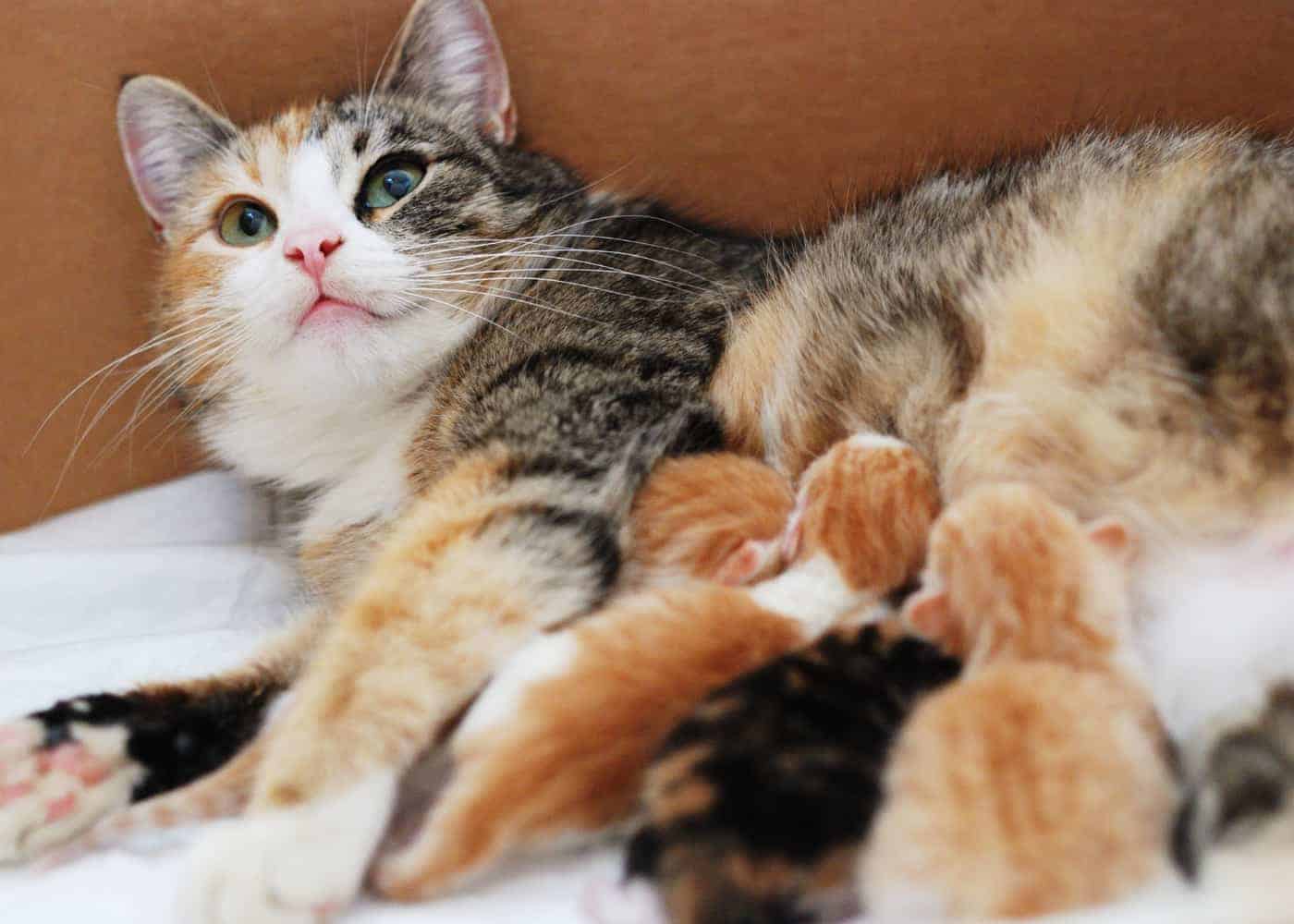
When it comes to choosing the best food for nursing cat mothers, there are a few key subtopics to consider.1.
1. Ingredients
The quality of ingredients in your cat's food can have a big impact on their overall health and well-being. When choosing a cat food for a nursing cat mother, it's important to look for high-quality, nutrient-rich ingredients.
Protein should be the main ingredient in your cat's food, as it is essential for muscle growth and milk production. Look for sources of protein like chicken, turkey, or fish. Avoid foods that list by-products or fillers as the main ingredient, as these may not provide the necessary nutrition for your cat and her kittens.
Fatty acids are also important for a nursing cat mother, as they support brain development in her kittens. Look for a food that contains omega-3 and omega-6 fatty acids, which can usually be found in fish or flaxseed.
2. Wet vs Dry
Choosing between wet and dry cat food can be a difficult decision, but it ultimately depends on your cat's preferences and needs. Wet cat food is a great option for nursing cat mothers because it contains a higher moisture content, which helps keep them hydrated. It's also easier for them to chew, especially if they're still recovering from giving birth.
On the other hand, dry cat food has its own advantages. It is more convenient to store and feed, as it doesn't require refrigeration like wet food does. Dry food also helps promote dental health by reducing plaque and tartar buildup.
When deciding between wet and dry cat food for nursing cat mothers, it can be beneficial to offer a combination of both. This way, your cat gets the benefits of both types of food.
3. Bag Size
When it comes to bag size, it's crucial to consider the needs of your nursing cat mother. You want to make sure you have enough food to sustain her throughout the nursing period, without overstocking and risking food waste. Finding the right balance is key.
First, assess the number of kittens your cat has given birth to. This will give you an idea of the increased food consumption she will require. Remember, she needs extra nourishment to produce milk and support her growing babies. It's recommended to consult your veterinarian to determine the appropriate bag size based on your cat's needs.
A larger bag size may be suitable if your cat has given birth to multiple kittens. This ensures you have enough food on hand without constantly running out.
4. Food Allergies or Sensitivities
Let's dive into another crucial factor when selecting the best food for nursing cat mothers: food allergies or sensitivities.
Just like us, our furry friends can also have allergies or sensitivities to certain foods. It's essential to be mindful of these potential issues and choose a cat food that is suitable for their dietary needs. Some common allergens for cats include grains, dairy, and certain types of protein.
When searching for a suitable food for nursing cat mothers, look for options that are labeled as hypoallergenic or limited ingredient. These types of cat food are specifically formulated to minimize the risk of triggering allergies or sensitivities. They usually contain a single source of protein and are free from common allergens.
If you notice any signs of food allergies or sensitivities in your nursing cat mother, such as excessive scratching, gastrointestinal issues, or skin irritations, consult with your veterinarian.
5. Cost
Cost is a significant aspect to think about when selecting the ideal cat food for your nursing feline. While it's essential to prioritize your cat's health, it's also crucial to find a balance that fits your budget. Luckily, there are various cat food options available at different price points.
When considering the cost, keep in mind that higher-priced cat food doesn't always guarantee better quality. It's crucial to read the ingredient list and nutritional content to ensure you're getting the best value for your money. Comparing prices and doing a little research on different brands can help you find affordable options without compromising on quality.
Additionally, buying cat food in bulk can often be more cost-effective in the long run. Look for larger bag sizes or consider purchasing cat food in bulk from reputable suppliers.
6. Ease of Purchase
You want a product that is readily available and convenient to buy.
One option to consider is shopping online. Many pet food retailers offer a wide variety of options for nursing cat food, and you can easily compare prices and read reviews to make an informed decision. Plus, the food can be delivered right to your doorstep, saving you time and effort.
Another convenient option is to check with your local pet store. They often carry a selection of high-quality nursing cat food, and the knowledgeable staff can provide guidance and answer any questions you may have. Plus, you can physically see and feel the product before making a purchase.
When it comes to ease of purchase, it's all about finding a method that works best for you and your cat.
7. Should I Avoid By-Products?
You may have heard conflicting opinions about by-products in cat food, leaving you wondering, "Should I avoid by-products?" Let's take a closer look at it.
By-products are the parts of an animal that are not commonly consumed by humans, such as organs, bones, and blood. Many pet owners are concerned that these ingredients may be of lower quality or not as nutritious. However, it's important to note that by-products can actually provide important nutrients for cats, including essential amino acids and vitamins.
To make sure you're making an informed decision, it's a good idea to read the ingredient list on the cat food packaging. Look for specific by-products, such as "chicken liver" or "beef heart," which indicate higher quality ingredients.
Additionally, reputable cat food brands will often include added vitamins and minerals to ensure a well-rounded diet.
Conclusion: Final Verdict
After carefully examining the different aspects of cat nutrition and the specific needs of nursing mothers, it is clear that selecting the right food is crucial for the health and well-being of both the mother and her kittens.
By opting for a high-quality cat food that is specially formulated for nursing mothers, you can ensure that your feline friend receives all the necessary nutrients to support her during this crucial period.
Remember, it is important to provide a balanced diet that includes essential nutrients such as protein, fats, carbohydrates, vitamins, and minerals.
Look for a cat food that contains high-quality protein sources like chicken or fish, as well as healthy fats such as omega-3 fatty acids. These nutrients play a vital role in promoting the growth and development of the kittens, as well as supporting the overall health of the mother.
Additionally, consider the texture and size of the kibble, as nursing mothers may prefer smaller pieces that are easier to chew and digest. It is also worth noting that wet food can be a great option for nursing mothers, as it provides additional hydration and is often more palatable.
Common FAQs:
Ans. Nursing cats need to eat smaller, more frequent meals. It is ideal to offer her food several times a day to ensure she has a steady supply of calories and nutrients to sustain her and her kittens.
Ans. While regular cat food can be a part of a nursing cat's diet, it is important to choose a high-quality cat food specifically formulated for nursing mothers.


